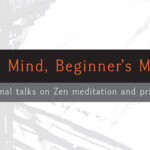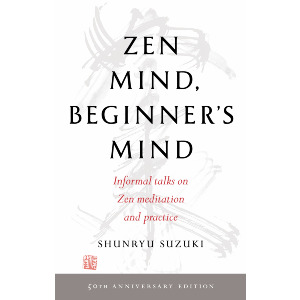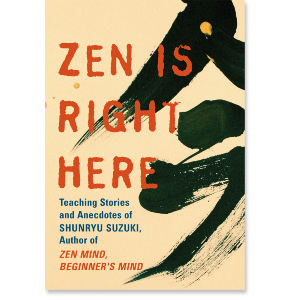In the forty years since its original publication, Zen Mind, Beginner’s Mind has become one of the great modern spiritual classics, much beloved, much reread, and much recommended as the best first book to read on Zen. Suzuki Roshi presents the basics—from the details of posture and breathing in zazen to the perception of nonduality—in a way that is not only remarkably clear, but that also resonates with the joy of insight from the first to the last page.
Zen Mind, Beginner's Mind is similar to past book club pick Shambhala: The Sacred Path of the Warrior, in that content is from talk transcripts, rather than written intentionally as a book. The core question the book explores is how to maintain beginner’s mind through meditation and in life.
Introduction
“This is the purpose of all Zen teaching—to make you wonder and to answer that wondering with the deepest expression of your own nature.” (xiii)
Beginner’s Mind - Shoshin 初心
“When we have no thought of achievement, no thought of self, we are true beginners. Then we can really learn something. The beginner’s mind is the mind of compassion. When our mind is compassionate, it is boundless.” (2)
Mind Waves
“Actually water always has waves. Waves are the practice of the water. To speak of waves apart from water or water apart from waves is a delusion. Water and waves are one. Big mind and small mind are one. When you understand your mind in this way, you have some security in your feeling. As your mind does not expect anything from outside, it is always filled. A mind with waves in it is not a disturbed mind, but actually an amplified one. Whatever you experience is an expression of big mind.” (19)
Mind Weeds
“You should rather be grateful for the weeds, because eventually they will enrich your practice. If you have some experience of how the weeds in your mind change into mental nourishment, your practice will make remarkable progress. You will feel the progress. You will feel how they change into self-nourishment.” (20)
Bowing
“A master who cannot bow to his disciple cannot bow to Buddha.” (29)
Zen and Excitement
“When your practice is calm and ordinary, everyday life itself is enlightenment.” (43)
Mistakes in Practice
“Dogen-zenji said, ‘Do not think you will necessarily be aware of your own enlightenment.’” (58)
Study Yourself Dogen
“Dogen-zenji said, ‘To study Buddhism is to study ourselves. To study ourselves is to forget ourselves.’” (66)
Nirvana, the Waterfall
“Before we were born we had no feeling; we were one with the universe. This is called ‘mind-only,’ or ‘essence of mind,’ or ‘big mind.’ After we are separated by birth from this oneness, as the water falling from the waterfall is separated by the wind and rocks, then we have feeling. You have difficulty because you have feeling. You attach to the feeling you have without knowing just how this kind of feeling is created. When you do not realize that you are one with the river, or one with the universe, you have fear. Whether it is separated into drops or not, water is water. Our life and death are the same thing. When we realize this fact we have no fear of death anymore, and we have no difficulty in our life.” (83)
“To talk about it this way is quite easy, but to have the actual feeling is not so easy. But by your practice of zazen you can cultivate this feeling.” (84)
Traditional Zen Spirit
“If you are trying to attain enlightenment, that is a part of karma, you are creating and being driven by karma, and you are wasting your time on your black cushion.” (88)
The Quality of Being
“Because you think you have a body or mind, you have lonely feelings, but when you realize that everything is just a flashing into the vast universe, you become very strong, and your existence becomes very meaningful. This was Dogen’s enlightenment, and this is our practice.” (96)
Emptiness
“As long as we have some definite idea about or some hope in the future, we cannot really be serious with the moment that exists right now. You may say, ‘I can do it tomorrow, or next year,’ believing that something that exists today will exist tomorrow.” (100–101)




